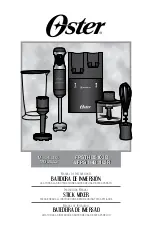
VII
EMC / Maintenance / ESD
• When performing a repair by replacing complete assemblies, the removed
assembly must be sent back to the supplier in the same packing material
in which the replacement assembly was shipped. If this should not be the
case, any claim for a possible refund will be null and void.
• Unpacked ESD sensitive components should only be handled in ESD
protected areas (EPA, e.g. area for field service, repair or service bench)
and only be touched by persons wearing a wristlet connected to the
ground potential of the repair or service bench by a series resistor. The
equipment to be repaired or serviced as well as all tools and electrically
semi-conducting work, storage, and floor mats should also be connected
to this ground potential.
• The terminals of ESD sensitive components must not come in uncontrolled
contact with electrostatically chargeable or metallic surfaces (voltage
puncture, discharge shock hazard).
• To prevent the components from undefined transient stress and possible
damage due to inadmissible voltages or compensation currents, electrical
connections should only be established or separated when the equipment
is switched off and after any capacitor charges have decayed.
E
Repair
By removing housing parts or shields, energized parts may be exposed. For
this reason the following precautions must be observed:
•
Maintenance may only be performed by trained personnel in accordance
with the applicable regulations.
•
The equipment must be switched off and disconnected from the AC power
outlet before any housing parts are removed.
•
Even if the equipment is disconnected from the power outlet, parts with
hazardous charges (e.g. capacitors, picture tubes) must not be touched until
they have been properly discharged. Do not touch hot components (power
semiconductors, heat sinks, etc.) before they have cooled off.
•
If maintenance is performed on a unit that is opened while being switched
on, no un-insulated circuit components and metallic semiconductor hous-
ings must be touched, neither with bare hands nor with un-insulated tools.
Certain components pose additional hazards:
•
Explosion hazard from lithium batteries, electrolytic capacitors and power
semiconductors (Observe the component’s polarity. Do not short battery
terminals. Replace batteries only by the same type).
•
Implosion hazard from evacuated display units.
•
Radiation hazard from laser units (non-ionizing), picture tubes (ionizing).
•
Caustic effect of display units (LCD) and components containing liquid
electrolyte.
Such components should only be handled by trained personnel who are prop-
erly protected (e.g. protection glasses, gloves).










































